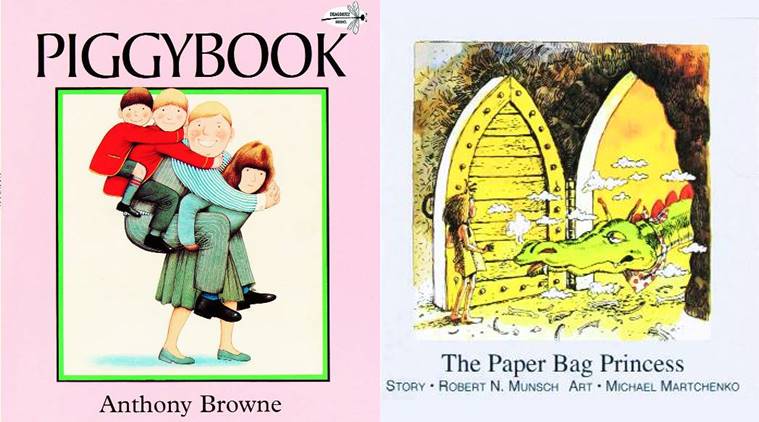By the Book: The Age of Anger
This week, books taking on patriarchy. In these dark times, how does one teach a future generation about rules of engagement and give them tools to take on patriarchy head on? These books might have some pointers

Books taking on patriarchy.
It has been a week of relentless rage on social media as women outed sexual predators at the workplace and vented about their experiences of harrassment and trauma in what is now a definitive chapter of the #MeToo movement in India. In these dark times, how does one teach a future generation about rules of engagement and give them tools to take on patriarchy head on? These books might have some pointers:
For all those times when a homemaker is asked, “But what do you do all day?” or a working woman is criticised for her choice of stepping out of home for a livelihood, Piggybook by Anthony Browne (1986, Penguin RandomHouse, appropriate for 4+) might have an answer. Mr Piggott and his two sons are ungrateful wretches and are absolutely obnoxious to Mrs Piggott, until, one day, she just ups it and leaves. It’s only then, when they have to do everything on their own, that the three men of the family realise what an absolute pig they have been to Mrs Piggott. It’s never too early to learn about equal responsibility and gratitude and this book can be a perfect stepping stone towards that end.
When it comes to reinforcing stereotypes, one needs look no further than popular merchandise — clothes and toys for children — which hammer in the message that pink is for girls and blue for boys and that “sugar and spice and all that’s nice” is the lot for girls, while boys have to be satisfied with “frogs and snails/And puppy-dogs’ tails”. Well, not really. In The Paper Bag Princess (1980, Annick Press and Discus Books, appropriate for 6+) by Robert Munsch and illustrated by Michael Martchenko, Princess Elizabeth is a young woman who knows her mind. She is going to marry Prince Ronald and live happily ever after, except that a dragon with a penchant for unhappy endings arrives and spoils her perfect plans by kidnapping Ronald, burning her clothes and destroying her castle. The Princess is determined not to take the affront lying down and so, dressed in the only available option — a paper bag — goes chasing after the dragon in a bid to rescue the Prince. When she does rescue him though, the ingrate Prince tells her to come back to her when she looks more “like a princess”, at which point, Elizabeth does what any sensible young woman should do: reject the Prince and go on to live a happy life on her own — a perfect lesson in emancipation and self-confidence.
A life of adventure and delight is possible if only one can overcome one’s fears. In The Gutsy Girl: Escapades for Your Life of Epic Adventure (2016, Bloomsbury, appropriate for 10+), a self-help-manual-meets-exhilarating-examples-of-women-who-dared, author Caroline Paul talks of her own childhood as a timid and unsure girl, always dreaming of delicious adventures, until she decided to plunge headlong into the unknown one day. A collection of stories of women who carved their own niche in an often unyielding world, this is a pre-tween Lean In of sorts that encourages young children to believe in the power of self-reliance and the necessity of building an empathetic community.






















No hay comentarios:
Publicar un comentario